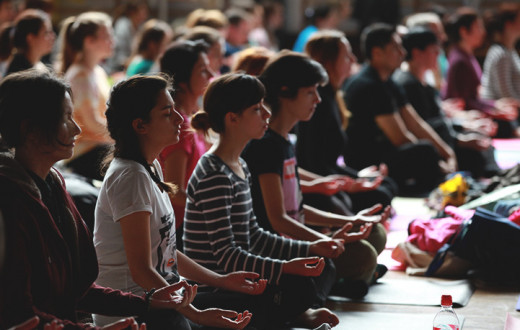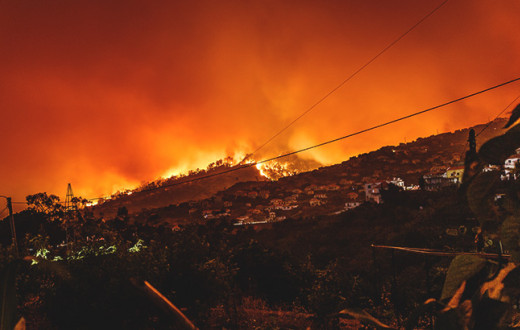By Paige Leigh Reist | Posted: July 05, 2019
Our breath is one of the most powerful sources of prana, our life force. But what happens when something as simple and essential as breathing can actually threaten our health, instead of enhancing it? Air pollution is a rising concern, and research is beginning to understand the deep impact environmental contaminants have on our physical and mental health.
How air pollution damages your health
Cardiovascular and respiratory health
Perhaps the most obvious consequence of exposure to poor air quality is the increased risk of cardiovascular disease, especially among the elderly, the diabetic, and those in a lower socioeconomic bracket. Pollution ages the lungs and decreases lung capacity, and can cause diseases like emphysema, asthma, and bronchitis.
Heart health
According to the WHO, one third of deaths by stroke, lung cancer, and heart disease are directly linked to exposure to pollutants in the environment, and poor air quality increases the risk of heart attacks, stroke, and angina.
Fertility
It’s not just your respiratory system that air pollution damages: a new study presented this month at a meeting for the European Society of Human Reproduction and Embryology revealed that poor air quality can affect fertility in women, reducing the presence of AMH (anti-Müllerian hormones), which indicate the health and viability of a woman’s ovarian reserve. In men, poor air quality can negatively impact sperm quality. It’s also suggested that pollution can increase the risk of miscarriage and stillbirth. If you’re trying to add to your family, living in an area with less-than-stellar air quality can throw a real wrench in your plans.
Mental health
Bad air quality can actually increase the risk of mood disorders. Not only can pollution can keep you inside, exacerbating social isolation, but it actually has a physical impact on your brain. According to a 2018 study, small particles from pollution can work their way into your brain, diminishing white matter and increasing neuronal degeneration. This can lead to an earlier onset of diseases like Alzheimer’s, as well as having an impact on rates of depression and suicide. This is especially true for those of us who grew up with poor air quality: children who were exposed to airborne pollutants were more likely to develop depression and other mental disorders when they reached adulthood.
What you can do to protect yourself and the environment
Air pollution and climate change are intimately linked, both arising as a result of fossil fuel combustion. Human industry is the most dangerous threat to the health of the environment, and of course, when the environment is endangered, so is our health.
Climate change and air pollution can seem like an insurmountable problem, especially when you take into account that a handful of large corporations are responsible for over 70% of global emissions. In fact, so many people feel hopeless, confused, and even angry over climate change and pollution that there’s a name for it: climate grief.
Even though it might seem as though you can’t make an impact on air pollution or climate change, there are ways in which you can protect both yourself and the environment. Becoming more environmentally conscious isn’t pointless! Making a small change in your personal life and in your community is better than making no change at all. Though it may appear as though it’s only a drop in the ocean, the ocean is made up of drops. We make a global impact by starting at home.
Here are just a few ways to reduce the effects of air pollution:
Use an air purifier at home.
Change the way you travel: when possible, carpool, take public transit, bike, or walk.
Support ethical, environmentally friendly companies. Do your research when you’re purchasing cleaning supplies, paint, groceries, and clothing.
Make your concerns known to your local representatives! Call or email your mayor’s office, your community leaders, and your senators, and make your vote count when it’s election time.
Eat locally and seasonally. The less time your food spends on the road, the better! Not only are you supporting small businesses and invigorating your local economy, but you’re also contributing to reducing fuel emissions from transport trucks. Support farmers by choosing organic, pesticide-free produce.
Air pollution is a serious problem, but it doesn’t have to be a death sentence. Actively participate in improving your habits and your community, and together, we can all start to work towards a better, cleaner future.
Paige Leigh Reist is a writer, editor, blogger, and creative writing instructor.



















